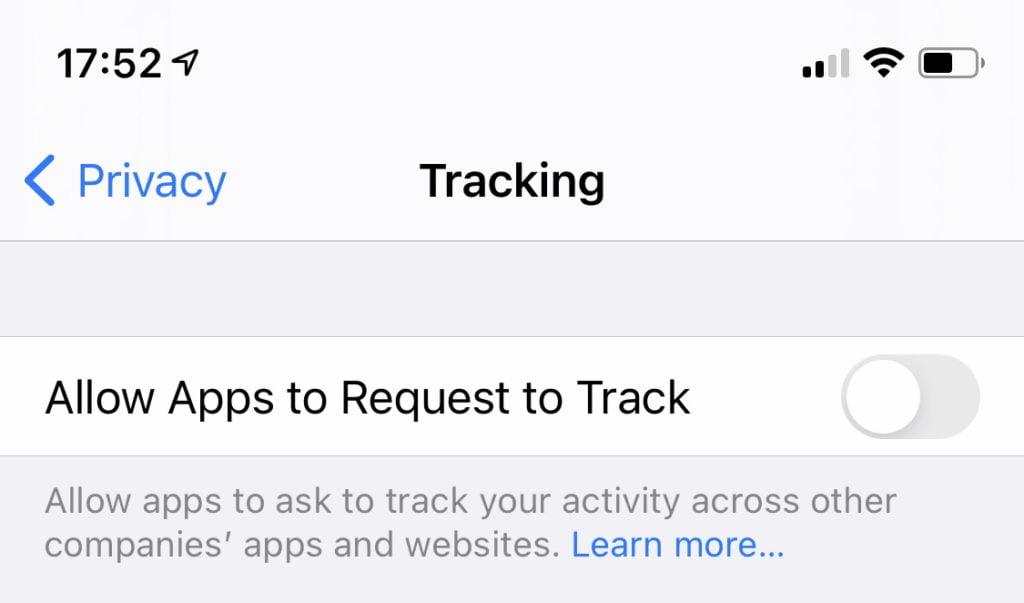The war between Apple and Microsoft on one side, and Amazon, Facebook and Google on the other officially started in September of last year, and they just escalated with Apple’s release of iOS 14.5. Apple’s declaration that it will end app tracking–the practice of allowing the developer of one mobile phone application to be able to use your mobile device to track your activity in other applications you use on the mobile phone and to correlate your activity with your browsing habits on your computer and phone–is a major pillar of the business model of companies like Facebook and Google who collect this information in order to target ads at you specifically.
The practice goes much further, however. Both companies build “psychographical” profiles of users with such tracking information and use these models to control what each user sees. App tracking is thus one of the many elements of control through which Google and Facebook control the total user experience: they tailor the content they place before you in order to elicit the emotional response that will trigger you to click the ads they have included in the content they place before you. This is why, for example, Google is estimated to collect 20 times as much data as Apple does. It sounds sinister, and it is. (In the case of Amazon, this information is used to display search results that will maximize Amazon’s profit on the sale, not the value for the customer.)

This is why Apple has elected to stop the practice. (The more cynical, economic reasons for Apple and Microsoft to stop this practice have been enumerated here and here, but that doesn’t detract from the legitimacy of their effort to enforce user privacy.) Facebook’s objection to Apple’s approach has been rather dramatic, and the robust fashion by which Apple have elected to end this practice explains it well.
As the picture above shows, upon installing iOS 14.5, all app tracking is turned off by default, and there is no way of turning app tracking on. What Apple offers is a single setting in the privacy preferences of iOS 14.5 to turn on app tracking permission requests. That’s quite a mouthful. This means that the only thing Apple allows users to do is to give the app the permission to request the user’s permission to track the user. Naturally, if anyone is mindful enough to turn this feature on, it is extremely likely that they will still deny the app the permission to track the user. Hence, in one fell swoop, Apple has ended a truly pernicious business practice that may well alter the business practice of much of big tech.
As I have plainly stated before, I am an Apple and Microsoft shareholder because I see the fee for service model as the correct, fair and equitable means of doing business. The “free” services that rely on psychological manipulation of the user for the sake of generating ad revenue is intrusive, dishonest (because no disclosures are made to the user) and unfair.
In essence, the practice is immoral. The practice creates not a walled garden for the user, but a psychological prison in which the corporation controls every search result the user receives, every news bite the user sees and every advertisement the user views. It is a solitary cell in which every emotion and psychological predisposition of the user is modeled with the aid of the data collected from every single one of the user’s actions in order to improve the monetary yield of the auction that determines which ads are integrated into the page that loads into the user’s browser. Thanks to Google and Facebook, we are rats in a cage. Given that the upper echelons of our government are too old and ignorant to understand or to regulate this industry, Apple–and to a limited extent Microsoft–are the heroes.
Stated another way, the consumer has two choices. One set of companies claims openly to offer free services in exchange for the user’s psychological manipulation. The other set of companies collects fees for the services it renders and does not claim to manipulate the user psychologically. It’s not the Allies vs the Axis, but it is a brutal war with well defined battle lines.
Oddly enough, absent regulation, the consumer can decide who wins this war. This phrase has never born more weight: caveat emptor!
